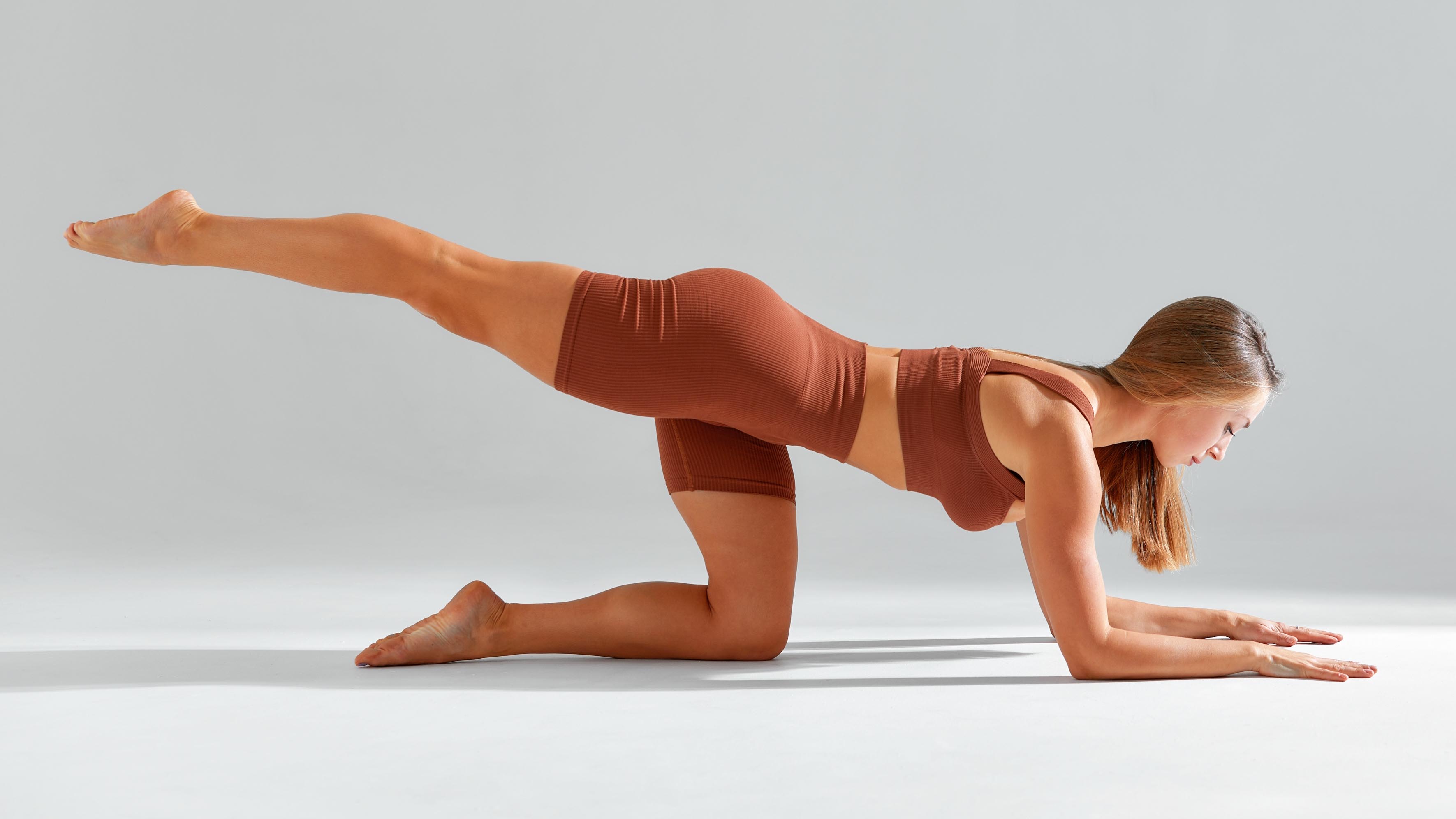Along with boosting posture, reducing back pain, and increasing your levels of flexibility, one of the most raved about benefits of Pilates is the fact that it will help carve out a stronger core.
And it’s all thanks to the slow, controlled, and precise movements that make up a Pilates class—like a single leg stretch, roll up, or toe taps. These deliberate exercises focus on engaging deep stabilizing muscles, like the transverse abdominis and pelvic floor.
How to do the 20-minute Pilates workouts

Watch On
With the likes of planks, roll-ups, toe taps and the corkscrew exercise, this workout features many of the best Pilates exercises designed to target your core.
During the 20-minute workout, Maurermeier demonstrates how to perform each move while explaining how to do so. So if you’re completing this workout in a shared space or gym, it’s worth popping on some of the best workout headphones so you can listen to her cues.
During the class, Maurermeier also gives you a range of exercise variations depending on what fitness level you’re at and what feels comfortable for your body. So this class is suitable for both beginners and Pilates pros. But if you feel like you’ve hit a plateau, you could always try increasing the resistance by adding in a resistance band or ring to make familiar moves more challenging.
That said, the idea of this workout isn’t to work up a huge sweat; it’s to complete each move with precision and control. Doing so will help you maximize the effectiveness, prevent injury, and ensure a powerful mind-body connection.
Is 20 minutes of Pilates a day enough?
On the surface, twenty minutes of Pilates might not seem like much. But Pilates educator and practitioner James Shaw says twenty minutes a day is a great amount of time to focus on you and your body.
“Classical Pilates connects the whole body through each exercise, creating a complete, balanced workout in a short space of time,” he says. “ It helps move the spine in all directions, which is key. Pilates isn’t just a workout, it’s also time to work inward, reconnect, and find focus in a world full of external distractions.”
To really ensure you get the most from your at-home workouts, Shaw suggests keeping your classes simple and opting for mat-based sessions. He also recommends focusing on connecting to the Pilates principles in each exercise you’re practicing.

The core Pilates principles include: control, precision, concentration, flow, breath, and centering.
But most importantly? “Have fun with it,” he says. “Adding Pilates into your daily routine should feel supportive, so try not to pressurise yourself. This will help to build consistency, which will help bring the benefits and a strong pilates practice.”

Follow Tom’s Guide on Google News and add us as a preferred source to get our up-to-date news, analysis, and reviews in your feeds.